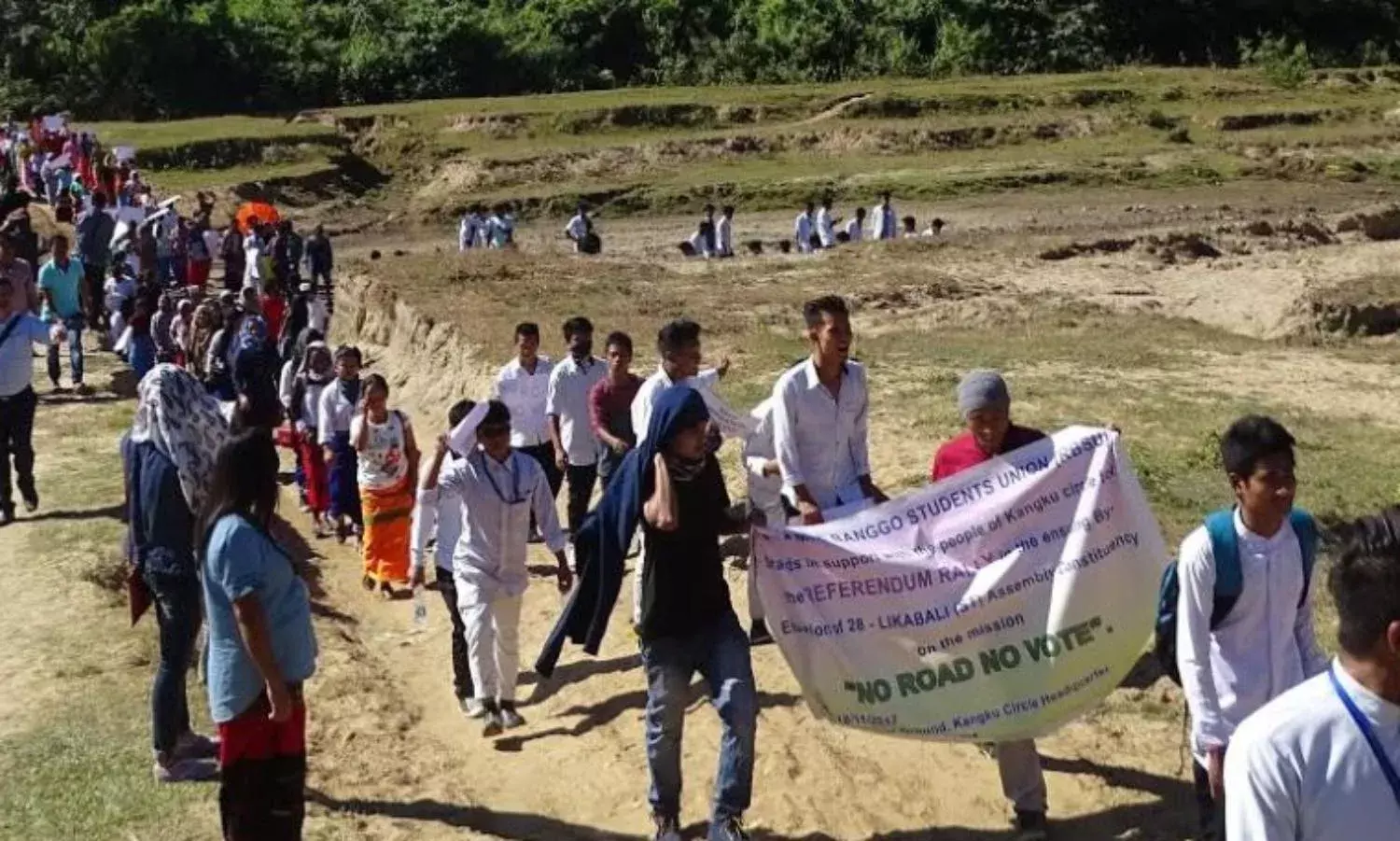Arunachal Pradesh Home to Polling Station With Just One Voter
#TCVotes Highest polling station in the state;

ITANAGAR: The two Lok Sabha seats and all 60 Legislative Assembly seats in Arunachal Pradesh will go for elections simultaneously on April 11.
The Election Commission of India on Sunday announced that Lok Sabha elections will begin on April 11 and continue for over a month till May 19 across seven phases, followed by counting of votes on May 23.
Additionally, assembly elections will also be held in Andhra Pradesh, Arunachal Pradesh, Odisha, and Sikkim simultaneously with the Lok Sabha polls, the Commission said.
While the BJP is in power in Arunachal Pradesh with 48 MLAs, defections in the last two years meant that the National People's Party currently has five (although it did not contest the 2014 elections), the and Congress has five seats (after initially winning the 2014 polls) which are likely to go down to four with Tali constituency MLA Markio Tado deciding to leave the party. The two remaining seats are with independent MLAs.
A total of 7,94,162 voters will exercise their franchise, out of which 4,01,601 of them are women. Like in 2014, women voters in the state outnumber men.
This time, there are also 11 polling stations in the state that will exclusively be for women.
Voting will be held in 2,202 polling stations across the state, with the highest number of voters (1,340) registered at polling station number 52 SE (Power) office, East Side, Naharlagun under Itanagar assembly constituency.
In a repeat of the 2014 election, the smallest polling station in terms of voters is Malogam for the Hayuliang assembly constituency in Anjaw district which had two voters back then. That number has fallen to a single woman voter this time around.
The polling station number 18 in Luguthang under chief minister Pema Khandu’s Mukto assembly constituency in Tawang is the highest polling station located at an altitude of about 13,583 feet.
The announcement of the election also means that the Model Code of Conduct has come into effect, barring the use of government machinery for political campaigning and prohibiting various activities that are to be followed by all political parties and candidates.
The last date of filing nominations is March 25 and the last date to withdraw nominations is March 28. Polling will be held from 7 am to 5 pm, and all elections must be completed by May 27.
Sources said that the legislative assembly is likely to be dissolved on Monday.
The present BJP state government has come under fire recently over the PRC issue and as a fallout of the violence that marked protests last month in the state capital, deputy chief minister Chowna Mein is abandoning the Lekang assembly constituency from where he has continuously won since 1995. This time, he will be fighting for the Chowkham seat, which was his elder brother CT Mein’s bastion.
Khandu has never had to contest the elections, having been elected unopposed in the past two occasions. This time, he could be staring at a fight for the seat against Lobsang Gyatso, a Buddhist monk who has been in the forefront of protests against the construction of large hydropower projects in the district.
The ruling party’s problems are complicated by the fact that most of its members only joined the BJP when it formed the government in December 2016. Veteran party workers who have been with the BJP are likely to vie for the ticket to contest the polls. A number of candidates have formally announced their intention to contest the polls although none of the parties have publicly announced their list of candidates.

